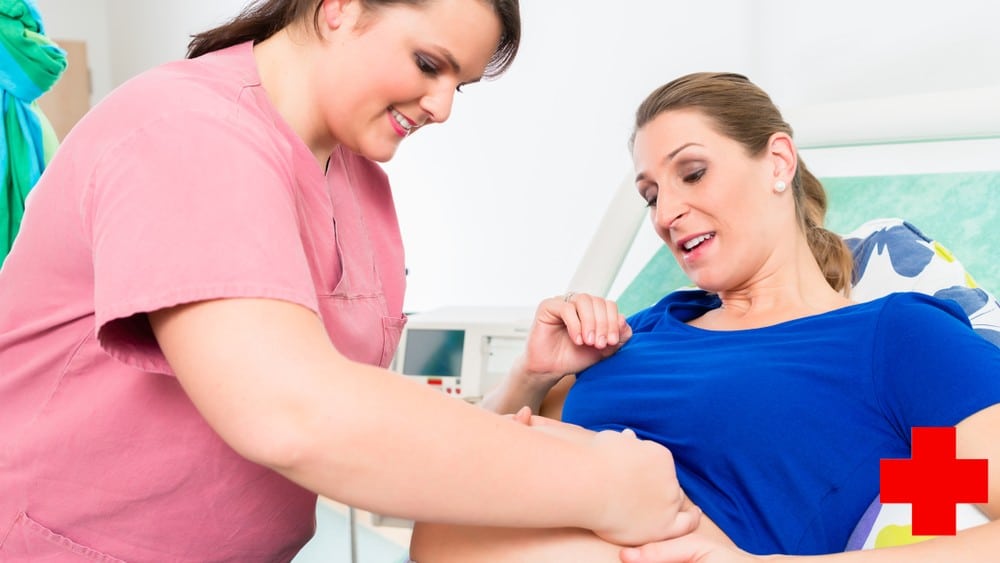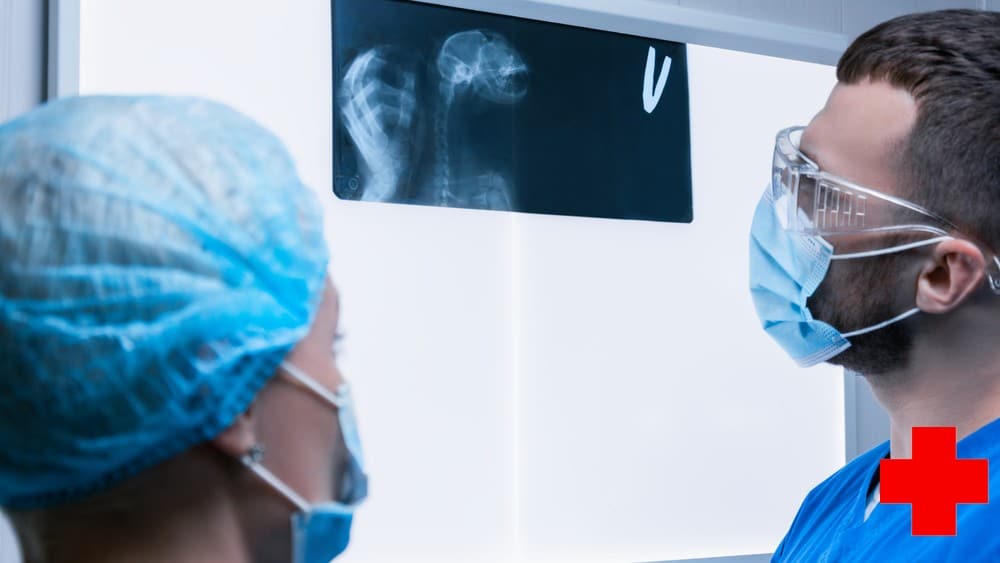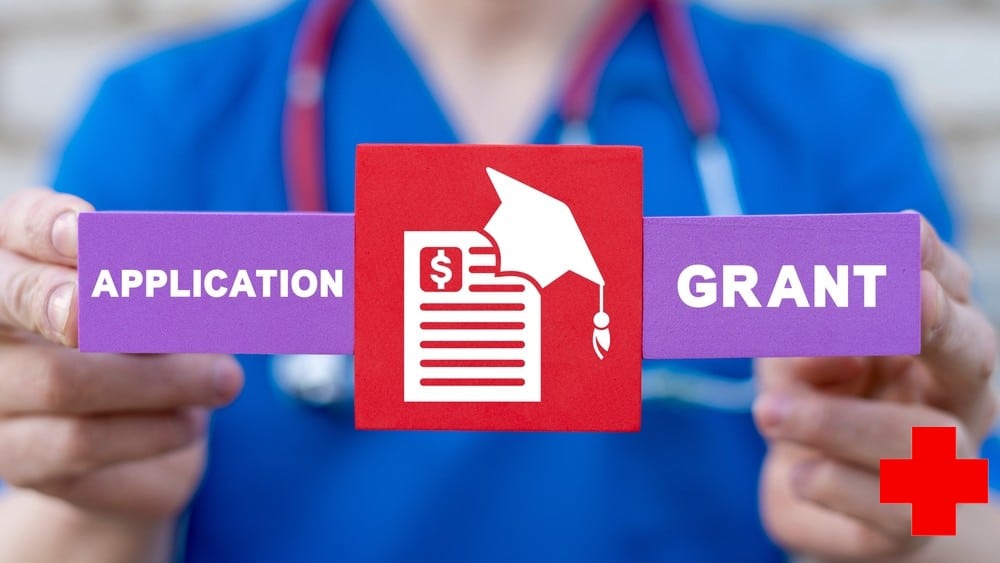Welcome to an educational piece about Community Health Nurse.
This article aims at expanding your knowledge about the roles and responsibilities of a Community Health Nurse, the salary obtainable, the educational and certification requirements, and lots more.
The article discusses the following points and more:
- Overview of a Community Health Nurse
- Education and Certification Requirements
- Job Description of CHNs
- Community Health Nurse Roles
- Salary and Job Outlook
So, let’s get started with it!
Overview of a Community Health Nurse

Community Health Nurses educate residents about illness, disease prevention, safe health practices, and how to receive health care services to promote the health and wellbeing of the communities they serve.
They also help people, families, and the medical community communicate better to enhance health outcomes.
Community Health Nurses are essential in developing programs that help communities get healthy, and they frequently treat impoverished, culturally diverse, and uninsured people.
In addition, they may offer free health screenings, vaccines, and other forms of preventative care at a reduced cost as part of their profession.
One of the most important responsibilities of a Community Health Nurse is to identify community health concerns and give healthcare to individuals who may not have access to or afford medical services.
Education and Certification Requirements

Determine the type of schooling you’ll require: While an associate degree may be required for some entry-level positions, most Community Health Nurses require a bachelor’s degree, preferably a bachelor of science in nursing (BSN).
Complete a nursing program recognized by the state: To increase your work chances, you should complete an accredited nursing degree.
Obtain a Registered Nursing License (RN): To practice as a Registered Nurse, you must pass the National Council Licensure Exam for Registered Nurses (NCLEX-RN).
Gain Clinical Experience and earn a public health nursing certification: While you might find work in Community Health Nursing directly out of school, having some experience in general nursing practice can help you acquire a better job.
You can also acquire a certification to demonstrate your skill and understanding if you have experience in Community Nursing.
Active Registered Nurses involved in the community are eligible for Community Health Nurse certification (CHN).
In addition, the American Nurses Credentialing Center offers a Community Health Nursing certification to Nurses who meet certain criteria.
Nurses who have acquired this certification are prepared to operate in a multidisciplinary setting, supporting community health and wellness.
Nurses with this credential are regarded as leaders in community health, which elevates their professional prestige and increases their opportunities for progress.
Job Description of CHNs
Community Health Nurses (CHNs) aim to educate and empower individuals and groups to manage their health in addition to their conventional duty of providing direct patient care in a clinical setting.
In addition, they are frequently used to educate the general population about certain diseases or disorders, such as the necessity of breast cancer screening or the dangers of smoking.
CHNs work with other health professionals, educators, and community members to develop and implement community-wide public health projects that target social determinants of health.
These nurses are a valuable resource for families, educators, and patients, and they help people understand community health issues better.
CHNs participate in a variety of activities, including:
- Educating communities about disease prevention and healthy lifestyles, including instructing others on how to
- Individuals and families that require in-home treatment and support are served; blood pressure monitoring, pain management, medication delivery, and wound care are examples of this
- Counsel to persons at a higher risk of illness or injury on ways to prevent illness
- Explaining how insurance works and assisting persons who are uninsured or underinsured in obtaining healthcare services
- Community outreach participation through disseminating public health information in schools, churches, businesses, and other public locations
- Providing free health checks for conditions such as obesity, diabetes, hypertension, and high cholesterol
- Conducting health evaluations to detect risk factors for chronic diseases such as cardiovascular disease
Community Health Nurse Roles

School nursing, public health, women’s health, occupational health nursing, and pediatric nursing are subfields of Community Health Nursing.
Within Community Health Nursing, each area has its focus, but all play a role in avoiding sickness and enhancing healthcare for the community.
CHNs frequently specialize in one or more of the roles listed below:
School Nurse: School nurses are among the most well-known Community Health Nurses because of their specific specialization.
Their main responsibility is the health and safety of the school population and the management of healthcare emergencies in the school context.
In addition, the position is critical in ensuring that children are protected from infectious diseases, have access to proper treatment in the case of an injury or illness, and are educated about good lifestyle choices.
Public Health Nurse Practitioner provides healthcare services to entire communities to avoid disease and promote wellbeing.
Nurses in public health generally work in outpatient settings, diagnosing and treating illnesses or widespread injuries in a particular demographic.
PHNPs are also prepared to work in community outreach programs, such as teaching people about preventative care or encouraging them to adopt healthy habits for a better quality of life.
Behavioral Health Specialist: Mental illness is typically stigmatized, but it may impact anyone at any time, according to a behavioral health specialist.
Community Health Nurses specializing in behavioral health work closely with patients to examine their mental and emotional states to detect difficulties such as depression, anxiety, or other mental illnesses.
Behavioral health specialists are prepared to deliver mental health treatments in various contexts, including schools, residences, and other public places.
Schools frequently employ many students with emotional, behavioral, or mental problems.
Teaching parents and teachers how to support the child’s needs effectively, adopting behavior management techniques at home and school, offering support during mental emergencies, and coordinating healthcare services are all part of their job.
Women’s Health Nurses: They serve as primary medical providers or as a team at facilities that provide healthcare services to women.
Women’s health nurses specialize in reproductive care, gynecology, and other female-specific health issues.
In addition, they are frequently educated to provide family planning, gynecological exams, and other basic services to women of all ages.
Occupational Health Nurses seek to improve public health by minimizing job dangers.
For example, they may collaborate with employers to establish healthy work environments, provide new employee training to reduce injuries and risks, provide preventative services to healthcare providers, or evaluate injury reports for patterns that could suggest a safety issue.
Clinical Research Nurses serve as a conduit between Clinicians and Clinical Trial Researchers.
They recruit study participants, work with patients throughout the trial process, manage patient records, and assist with the smooth running of clinical trials to acquire reliable data for research studies.
As a result, hospitals, clinics, and academic organizations frequently hire them.
Pediatric Nurses: They work with children to help them grow and develop healthily.
They could work in a hospital’s maternity unit, an outpatient clinic, or schools as part of the school health team.
Their job includes assisting with physical examinations and treating minor injuries and diseases.
They also teach youngsters disease prevention, nutrition, and other healthy lifestyle habits.
Community Nursing skills

Community Health Nurses should have the following abilities:
Education: If you want to work as a Community Nurse, you should have background knowledge in environmental health, biostatistics, social sciences, behavioral sciences, and epidemiology.
Verbal and Written Communication: Community Nurses may be a common point of contact for educating the community they work with, so they must have great written and vocal communication skills.
Empathy: Sensitivity, understanding, and empathy – all Nurses should demonstrate sensitivity, understanding, empathy, and other characteristics associated with the development of high emotional intelligence.
Detail Oriented: Public Health Nurses must be detail-oriented and pay close attention to what they do since community health is at stake.
Biology and anatomy knowledge is vital in Community Nursing and should be learned by all Nurses.
The grasp of biology, in particular, allows nurses to gain a better understanding of specializations such as infectious disease, and anatomy and physiology are vital because it is the study of the human body.
Active listening skills: CHNs should be able to engage with clients from the community they serve in a way that allows them to provide efficient listening and attention.
Positive coping skills: Working as a Community Health Nurse necessitates positive coping skills to assist nurses in remaining calm and present in high-stress situations.
Analysis and evaluation: Community Nurses must be capable of reading, analyzing, and evaluating data that informs the public education programs they teach and utilizes to make crucial policy decisions.
Cultural awareness and sensitivity: Public Health Nurses must be culturally aware and sensitive because they work with people from various backgrounds and demographics.
CHN Workplaces

Community Health Nurses’ daily responsibilities are determined by elements such as their location (rural or urban) and the people they serve (children, adults, or seniors).
Community Health Nurses operate in several places, including clinics and hospitals, physician’s offices, community agencies, and other places that provide healthcare to the general public.
Community Health Nurses can also be found in places like:
- Schools
- Retirement Communities and Nursing Homes
- Community health centers
- Prisons
- Homeless Shelters
- Veterans’ Residences
- Outpatient and inpatient facilities
Salary and Job Outlook

Community Health Nursing is a specialty for Registered Nurses (RNs); thus, their pay is comparable to those of other RNs in the field.
For example, the annual mean wage for registered nurses across various specializations was $80,010 in May 2020, according to employment and wage data published by the Bureau of Labor Statistics.
The table below shows the states with the highest pay for Community Health Nurses.
| STATE | HOURLY MEAN PAY | ANNUAL MEAN PAY |
|---|---|---|
| Massachusetts | $33.82 | $70,346 |
| Alaska | $31.93 | $66,413 |
| Nevada | $31.68 | $65,888 |
| Washington | $31.16 | $64,815 |
| New York | $30.31 | $63,038 |
| Maryland | $30.24 | $62,908 |
| Nebraska | $29.67 | $61,704 |
| New Hampshire | $29.29 | $60,915 |
| Virginia | $29.28 | $60,895 |
| Colorado | $28.64 | $59,577 |
Conclusion

The role of Community Health Nursing in the healthcare system is critical.
According to the Center for Disease Control (CDC), 6 out of 10 persons in the United States suffer from chronic ailments and diseases acquired in the community, such as obesity, heart disease, and cancer.
CHNs provide services for these disorders while also educating individuals on preventing them through working in the community.
Unfortunately, many people in these locations do not have access to inexpensive healthcare or educational resources to help them stay healthy.
CHNs fill this need by caring for the impoverished, uninsured, and people with limited health literacy.
FAQs

Are Community Health Nurses and Public Health Nurses similar?
Community Health and Public Health Nurses collaborate closely to help underserved communities achieve their goals. Community Health Nurses advocate for people who need quality healthcare in their communities. They work with local governments and healthcare facilities to guarantee that they get the help they need.
What are the qualifications for a Community Health Nurse?
Ideally, a nursing program that includes public health policy courses is the first step.
After that, you must pass the NCLEX-RN in the state where you wish to practice. Then, to better serve the communities they hope to help. Several aspiring Community Nurses pursue a Master of Public Health degree.
What are the top qualities of a Community Health Nurse?
Empathy, attention to detail, great interpersonal and communication skills, and stamina are all attributes that are common in other nursing occupations. Other attributes, such as a commitment to social justice, come into play given the social service setting of this vocation, as these nurses advocate for societal changes.
What makes a good Community Health Nurse?
One of the most gratifying careers in medicine is being a Community Health Nurse. They help patients enhance their quality of life by working with them individually. Also, many CHNs see this profession as a fantastic way to combine their love of nursing with their desire to aid at-risk populations.
What is Community Nursing?
Community Health Nursing, also known as Community Nursing or Public Health Nursing, combines primary care and nursing practice in a community setting. Previously, they worked for the government or the public health department. Since then, their role has grown. As a result, some may not work with patients directly.
References
Community Health Nurses’ Roles and Responsibilities









